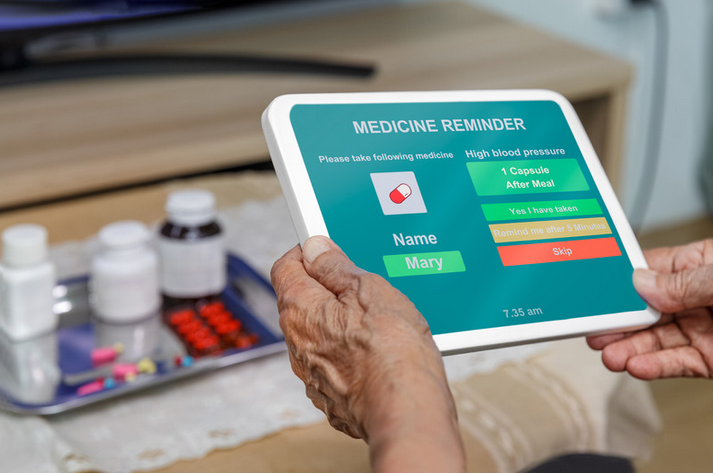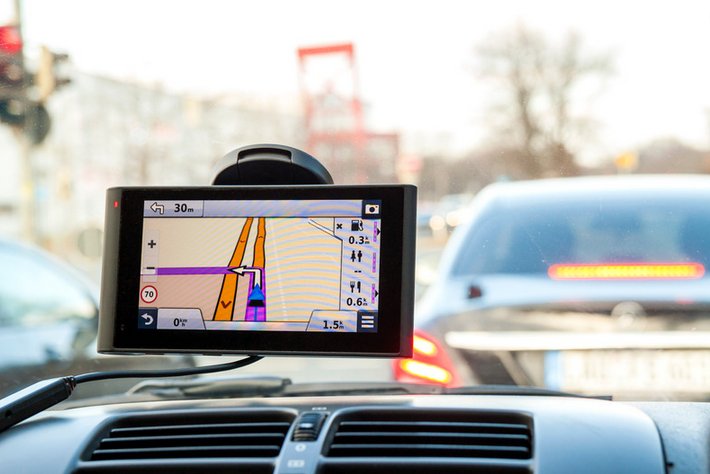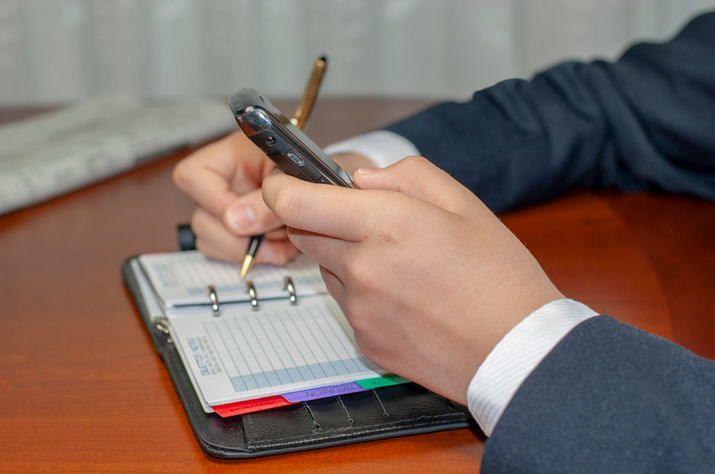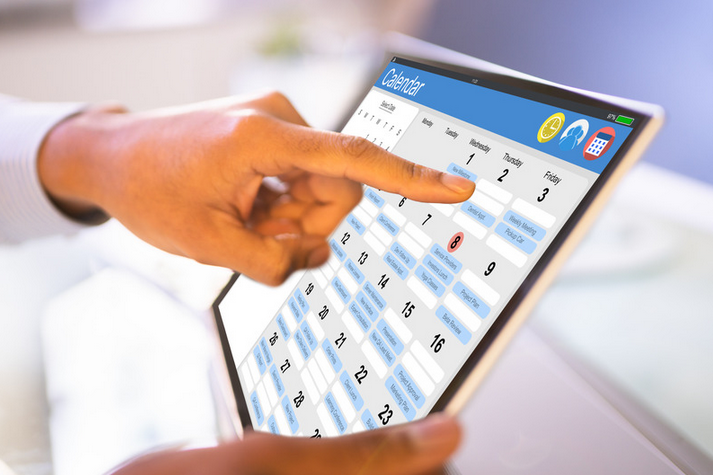Boost Your Recall: Discover 8 Simple Memory Aids That Really Work

Ever find yourself struggling to recall tasks like medication schedules, grocery lists, or crucial appointments? You’re far from alone in facing these memory challenges. Memory glitches are a universal occurrence, transcending age and background. While memory experts frequently advise these uncomplicated aids to individuals dealing with mild cognitive impairment or initial signs of dementia, the truth is anyone – yes, even the busiest caregivers – who have grappled with the frustration of forgetting something significant stands to gain from them. Join us on a journey to uncover these straightforward yet remarkably effective memory aids, tailored to empower not only those seeking clinical support but also anyone striving to conquer memory lapses and enhance their daily lives.
What are Memory Aids?
In the realm of senior care and caregiving, a memory aid is a compassionate companion that helps seniors confidently navigate daily life. These aids, whether simple reminders or advanced digital tools offer support in remembering essential tasks, medications, and appointments.
Memory aids not only provide practical assistance but also foster a sense of independence, allowing seniors to maintain their routines and autonomy. For caregivers, these aids are a lifeline, reducing stress and enabling a more focused and meaningful caregiving experience.
In this journey of shared moments and stories, memory aids become bridges that connect generations, ensuring that cherished memories remain vibrant while empowering seniors to live life to the fullest.
Three Basic Principles
Unlock the path to success while employing memory aids with these essential principles.
- Principle 1: Act without hesitation. To effectively harness the power of memory aids, put them into action promptly. For instance, jot down appointments without delay and respond to medication reminders as soon as they sound.
- Principle 2: Embrace simplicity. Eliminate redundancy; clarity mitigates confusion. For instance, opt for a single calendar instead of juggling multiple ones.
- Principle 3: Foster consistency. Integrate memory aids seamlessly and consistently into your routine. Cultivate the practice of utilizing them unfailingly, allowing them to seamlessly weave into the fabric of your daily life.”
8 Simple Memory Aids

Let’s face it: an effective memory is essential to conquer life’s daily challenges. Embrace the art of effortless recall through our simple memory aids! These straightforward tips and tools will help you transform your memory, making it more organized, precise, and powerful. Unlock your brain’s potential and tackle busy schedules or information overload with grace and ease.
1. Medication Reminders
Successfully managing medications can be a challenging task for both caregivers and independent adults. Thankfully, an array of tools is available to aid in the timely dispensing and consumption of medications.
Medication alarms can be set up to send email notifications or emit beeping sounds on a designated watch. Furthermore, some pill containers offer visual reminders. By incorporating these user-friendly resources into your routine, you can ensure medication adherence, leading to better overall health and well-being. Explore more about medication management to prevent missed doses and improve medication accuracy.
2. GPS Systems
Global Positioning System (GPS) tools have turned into an integral part of our lives, guiding us to our desired destinations with minimal effort. These easy-to-use systems alleviate the brain strain of recalling intricate directions, enabling you to focus on other vital activities. By freeing up cognitive resources, GPS systems indirectly support enhanced memory recall.
Embrace the assistance this technological marvel offers to stay on the right path. By shifting the burden of navigation onto GPS, your cognitive capacity can prioritize and retain more critical information. So, turn to GPS systems for a more efficient journey and a memory-friendly lifestyle!
3. Centralized Household Calendar
A centralized household calendar is an excellent organizational tool to keep track of appointments, events, and tasks for all family members. Having this comprehensive overview of daily activities in a single, accessible location reduces the stress of recalling individual schedules, leading to improved memory recall.
Introduce this valuable system into your home for a well-organized family routine. Encourage all members to contribute to the calendar, creating a sense of shared responsibility. As everyone becomes acquainted with this habit, you’ll find it helps free up cognitive capacity, ultimately improving memory recall and allowing everyone to focus on more meaningful pursuits.
4. Portable Notebooks (Small)

Small portable notebooks provide an old-school yet effective approach to memory support. Jotting down important to-dos, appointments, or creative ideas helps imprint this information in your memory and enhance recall. The handy size allows you to carry them wherever you go – be it a business meeting, the grocery store, or during your travels.
For example, use a small notebook to record shopping lists, saving you the mental strain of remembering every item. Alternatively, jot down sudden brainwaves or ideas as they come so you never lose an important thought. Over time, this compact memory assistant will become an essential part of your daily routine, improving recall and keeping your thoughts ordered and accessible.
5. Don’t-Lose Basket or Shelf
A ‘Don’t-Lose’ Basket or Shelf serves as a dedicated spot to keep your everyday essentials. This system drastically reduces the risk of misplacing items and the mental strain of remembering where you last kept your belongings.
For instance, designate a basket near the entrance where you leave your keys, wallet, or any item you routinely need when stepping out. Likewise, assign a particular shelf for important documents, glasses, or the TV remote. Over time, this ingrained habit not only saves you from the aggravation of lost items but also aids in memory unwinding, as your mind no longer needs to retain minor placement details.
6. Visualization Techniques
Visualization, a powerful mental tool, can enhance memory retention by associating vivid mental images with the information you want to remember. By doing so, the abstract becomes more concrete, making it easier to retrieve the information later on.
For example, to recall a grocery list, visualize a quirky scene or story involving the items, like a giant carrot juggling bananas. Similarly, for remembering names, associate people’s appearances or personalities with their names, creating a vivid mental image. By engaging your imagination, these visualization techniques promote better memory recall, making it a valuable skill to practice and develop.
7. Mnemonic Devices
Mnemonic devices are powerful memory aids that revolve around simple techniques like association, visualization, and pattern creation. These tools enable us to memorize complex information effectively. They’re exceptionally beneficial when remembering sequences, lists, or important details.
For example, we can remember the order of the planets in our solar system with the mnemonic: “My Very Eager Mother Just Served Us Nachos,” representing Mercury, Venus, Earth, Mars, Jupiter, Saturn, Uranus, and Neptune. Similarly, the music world utilizes “Every Good Boy Does Fine” to recall the lines of the treble clef E, G, B, D, and F. It’s simple, quick, and well-suited for just about memorization.
8. Electronic Organizers

Electronic organizers have taken the efficiency of memory to new heights. They are digital tools available on our smart devices that help manage our daily tasks, important dates, reminders, and much more, keeping us systematic and never letting us miss a beat.
Take, for example, applications like Google Keep or Evernote. These can be used to jot down quick notes, create categorized to-do lists, and set location or time-based reminders. On the other hand, apps like Microsoft Outlook or Google Calendar are excellent for planning, manage appointments, or even sending invites to others for shared events. Electronic organizers can greatly enhance our productivity, reduce forgetfulness, and ultimately boost our memory recall.
Final Thoughts
Incorporating memory aids such as centralized household calendars, portable notebooks, designated baskets or shelves, visualization techniques, and mnemonic devices into daily routines can greatly enhance memory recall, reduce mental strain, and promote a more organized, focused life. The key lies in consciously including these strategies in your everyday lifestyle, leading to improved mental capabilities and overall well-being.
When seeking professional caregiving assistance for a loved one, it’s crucial to ensure that the chosen caregiver utilizes these memory aids effectively. Serenity Senior Care is composed of a team of dedicated, reliable caregivers who understand the importance of these techniques. To discuss your needs and learn more, don’t hesitate to call Serenity Senior Care.


